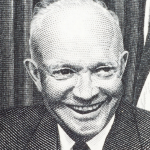
“The history of the world is but the biography of great men [and women].”
—Thomas Carlyle
Explore This Issue
ACEP Now: Vol 38 – No 05 – May 2019It’s not all about you. In fact, when it comes to achieving the summit of success, it’s often not about you at all. For most of us, understanding this can mean the difference between having a fulfilling professional life or feeling like a failure.
The Formula
 Carlyle’s statement above is thought-provoking but incomplete. Great women and men are indeed integral to history, but whether history made them or they made history is a matter for debate. The distinction between the top few percent of high performers and the top one-tenth of 1 percent about whom history books are written is often one of opportunity, not awesome intrinsic personal ability. Aware of this, we increase our chances for professional success while also enjoying our accomplishments and minimizing disappointment in our careers.
Carlyle’s statement above is thought-provoking but incomplete. Great women and men are indeed integral to history, but whether history made them or they made history is a matter for debate. The distinction between the top few percent of high performers and the top one-tenth of 1 percent about whom history books are written is often one of opportunity, not awesome intrinsic personal ability. Aware of this, we increase our chances for professional success while also enjoying our accomplishments and minimizing disappointment in our careers.
I enjoy studying U.S. presidential and ancient Roman history, particularly through biographies of those who have helped shape their times. Though these impactful people vary greatly from one another, common themes, nonetheless, unite them. Most were bright and/or talented. Most worked exceedingly hard to excel in their work. However, nearly all, not just most, are persons of historic interest because unique circumstances afforded them unique opportunities. Stated as a formula: historic achievement = ability + effort + opportunity.
 These three elements are neither universally possessed nor reliably attainable. Ability is most common, intense personal effort less so, and special opportunity is notably scarce in comparison to the others (see Figure 1). To reach historic levels of individual achievement in leadership or any endeavor, all three are required.
These three elements are neither universally possessed nor reliably attainable. Ability is most common, intense personal effort less so, and special opportunity is notably scarce in comparison to the others (see Figure 1). To reach historic levels of individual achievement in leadership or any endeavor, all three are required.
Three Essential Elements
First, some measure of innate ability is the necessary raw material of any exceptional leader. This being said, many people possess sufficient ability to excel in one or more areas of human endeavor. However, while most incapable people may never become transformational leaders, it is also true that many highly capable people never become exceptional leaders. In a relative sense, ability is essential, abundant, and insufficient. Ability requires two additional elements, each progressively less common, to produce exceptional performance.
The second essential element is effort. Deluded leaders believe their own awesome genius is the key to their success. Grounded leaders understand that the difference between very good and great is usually not intrinsic ability but effort. Hard, focused, sustained effort is essential to shape and polish innate ability to diamond-like brilliance. While there are exceptions, individuals whose performance is truly exceptional still must make an extraordinary effort. Olympic athletes, world-class musicians, high-achieving leaders, etc. frequently started their journeys young, pursued a singular activity with uncommonly intense focus, and sustained this concentrated effort over an unusually long period of time. Thomas Edison’s well-known remark memorably captures this sentiment: “Genius is 1 percent inspiration, 99 percent perspiration.”
 There remains a third essential element, both rare and subject at best to influence but seldom under our control. This third element is opportunity. Some might refer to this as fate, luck, or chance. Countless highly able and hard-working persons live out very productive, high-performing lives without reaching the pinnacle of achievement and prominence in their fields because they lacked opportunity. On this point, egotistic leaders go astray, whereas self-aware and grounded leaders recognize they have benefitted from uncommon opportunity(ies) and, at times, exhibit inspiring humility arising from sincere gratitude for their good fortune.
There remains a third essential element, both rare and subject at best to influence but seldom under our control. This third element is opportunity. Some might refer to this as fate, luck, or chance. Countless highly able and hard-working persons live out very productive, high-performing lives without reaching the pinnacle of achievement and prominence in their fields because they lacked opportunity. On this point, egotistic leaders go astray, whereas self-aware and grounded leaders recognize they have benefitted from uncommon opportunity(ies) and, at times, exhibit inspiring humility arising from sincere gratitude for their good fortune.
Pages: 1 2 3 4 | Single Page





One Response to “Want to Make History? You’ll Need This Formula for Success”
June 1, 2019
David GriffenVery good article. Thank you.
Opportunities are all around us. Perhaps not near the scope of leading the allied armies in Western Europe during WWII, but they are there none the less.
I really like the advise on networking: “Genuinely appreciate the company of these others…”. A key to networking is the same key to enjoying your patients; you have to like people.